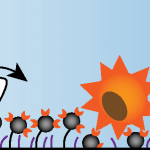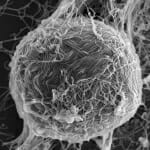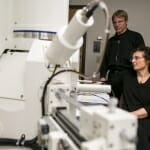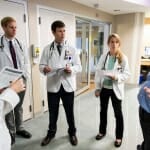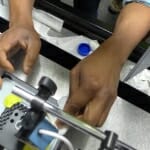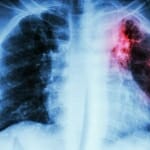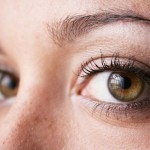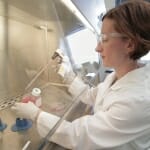Category Health & Wellness
UW study: Excessive use of menthol cough drops could actually increase coughs
A new study of more than 500 patients has shown that too many cough drops - especially those containing menthol - may actually make coughs more severe. Read More
They grin, you bear it. Research reveals physical impact of a smile.
New research shows that smiles meant to convey dominance trigger a physical spike in stress hormones in their targets, while smiles intended as a reward appear to physically buffer recipients against stress. Read More
Carbone Cancer Center gets renewal, $27 million in funding
The UW Carbone Cancer Center passed its review and will remain Wisconsin’s only National Cancer Institute (NCI) Comprehensive Cancer Center, one of 49 in the country. Read More
To sleep, perchance to forget
The debate in sleep science has gone on for a generation. People and other animals sicken and die if they are deprived of sleep, but why is sleep so essential? Read More
New approaches in neuroscience show it’s not all in your head
“How we experience the world affects us in more ways than we previously thought,” says Richard Davidson, a professor of psychology and psychiatry at UW–Madison and director of the Center for Healthy Minds. Read More
Use of mobile app reduced alcohol and drug use
The application called Seva provides a discussion board, interactive modules to teach problem solving, tools for coping with cravings and high-risk situations, and other features. Read More
UW startup’s invention featured at Paris fashion-tech show
The wearable system developed by Torq Labs is designed to help runners avoid injury by tracking leg movement with wireless sensors that transmit data to a smartphone app. Read More
The doc sets the goal, then ‘Digital Intern’ goes to work
A UW–Madison spinoff company is refining a medical management software package designed to help doctors treat patients more efficiently. Read More
From fungi to humans, ‘smart valves’ assist communication within, between cells
Trees. Fungi. Monkeys. Fish. Your aunt and uncle. Without fusion pores built of SNARE proteins, they can't exist. Read More
Cancer patients who tell their life story find more peace, less depression
A new study finds that delivering an edited life and cancer story elicited by a phone conversation measurably enhances the sense of peace in the face of looming death. Read More
Bringing cheap and accurate tuberculosis tests to Africa
Researchers are developing a "robust, simple and inexpensive way to increase the sensitivity of an existing TB test" by integrating a step very similar to a pregnancy test. Read More
As influenza looms, Madison firm advances human trials of revolutionary vaccine
One of the most promising universal flu vaccines is being developed by FluGen, a spinoff from the University of Wisconsin–Madison. Next up is an experimental trial. Read More
Study advances gene therapy for glaucoma
A new study shows an improved tactic for delivering new genes into the eye's drain, called the trabecular meshwork, offering a promising treatment for glaucoma. Read More
Waisman research into rare syndrome offers hope for families
Waisman Center research into the molecular mysteries of Rett Syndrome may ultimately help an 8-year-old girl who suffers from the rare neurological disorder. Read More
New stem cell method sheds light on a telltale sign of heart disease
A regenerative biology team at the Morgridge Institute for Research led by Dave Vereide unexpectedly unearthed a powerful new model for studying a hallmark of vascular disease. Read More
Lake Michigan waterfowl botulism deaths linked to warm waters, algae
UW-Madison researchers, with the help of citizen scientists, tracked bird deaths along Lake Michigan, and found that warm waters and algae apparently promoted the growth of botulism toxin-producing bacteria that caused them. Read More
Cracking the code of coenzyme Q biosynthesis
A research group is chipping away at many of these knowledge gaps in CoQ production and in understanding the role of CoQ deficiency in human diseases. Read More

